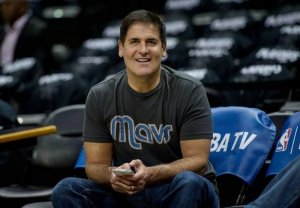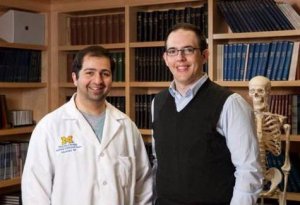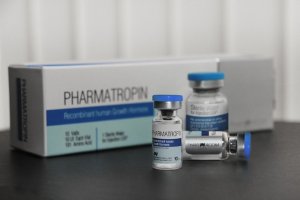Mark Cuban, the Internet dot com billionaire and controversial owner of the Dallas Mavericks, has always had a soft spot for anabolic steroid users. He never subscribed to the societal hysteria surrounding the whole issue of performance-enhancing drugs in sports. He never supported the government and media witch-hunts of celebrity athletes. And if Cuban has his way, athletes may be allowed to legally use human growth hormone (hGH) to facilitate recovery from injury.
For several years, Cuban urged professional sports to investigate the healing potential of the much maligned hGH for the treatment of soft tissue injuries. Athletes and trainers and even some orthopedic surgeons had long believed that there was a legitimate therapeutic use for hGH. There were only two problems. First, there was a lack of research examining the question. And secondly, no one wanted to fund such research due the demonization of PEDs by anti-doping agencies and anti-steroid politicians.
“Working together could lead us from the path of demonizing HGH and even testosterone towards a complete understanding,” Cuban told USA Today in 2013. “It could allow us to make a data based decision rather than the emotional decision we are currently making. And if it can help athletes recover more quickly, maybe we can extend careers and have healthier happier players and fans.”
Cuban saw what needed to be done and if no one else was going to fund the necessary research studies, he would do it. In 2014, the Mark Cuban Foundation awarded an $800,000 research grant to the University of Michigan to fund an FDA-approved, double-blinded clinical trial entitled the “Evaluation of Recombinant Growth Hormone Therapy to Prevent Muscle Atrophy in Patients With Anterior Cruciate Ligament Tears”.
The principal investigators are Christopher L Mendias, PhD, ATC, an assistant professor of Orthopaedic Surgery and Molecular & Integrative Physiology at the University of Michigan Medical School and MedSport researcher. Mendias’ will collaborate with Asheesh Bedi, MD, the team physican for the University of Michigan, an associate team physician for the Detroit Lions and fellow MedSport researcher.
“There is a large body of research on growth hormone, and our study will be the first of its kind to explore whether it may aid recovery from an ACL tear,” said Mendias. “We think that a brief treatment with growth hormone around the time of surgery will help to limit some of the otherwise irreversible loss in muscle mass and strength that occurs after these injuries.”
The three-year study started in May 2015 and is expected to conclude in March 2018. It will involve 48 male subjects undergoing ACL surgery and MedSport clinic at the University of Michigan. Each participant will receive a 5-week course of treatment with recombinant hGH also known as somatropin. The primary outcome measure will evaluate changes in “isokinetic and isometric strength measurements of thigh muscle” from pre-operative levels over the course of 26-weeks following surgery.
This isn’t the first time Cuban has put down big money on a project that many anti-steroid crusaders consider to be supportive of doping in sports. Cuban’s Magnolia Pictures was the distribution company for the steroid-friendly documentary “Bigger Stronger Faster*” in 2008. Anti-steroid crusaders and anti-doping officials hated it. But steroid users around the world celebrated to see a critical yet unbiased examination of steroids in society and sport.
Who knows why Cuban is so open-minded when it comes to performance-enhancing substances and steroids in sports. Perhaps it is due to the fact that his younger brother experimented with anabolic steroids while suffering from body dysmorphia and disordered eating. Cuban may be more sensitive to the motivations behind steroid use.
Or perhaps it is due to his desire to leave no stone unturned in the quest to benefit the interest of the athletes on his basketball team. Cuban said that if hGH therapy is prove to promote healing and recovery from ACL injuries, he would be the first to find a way to use this to advance his own interests in the Dallas Mavericks.
“If this works, I will figure out an angle to make money from having sponsored a study that changed the game,” Cuban told ESPN senior writer Bonnie Ford. “And if it does turn out that it helps athletes recover faster, I of course benefit from my interests in the Mavs and the NBA.
“Feel free to make that the headline. It doesn’t change anything at all.
“The results are the results. Either it works or it doesn’t.”





